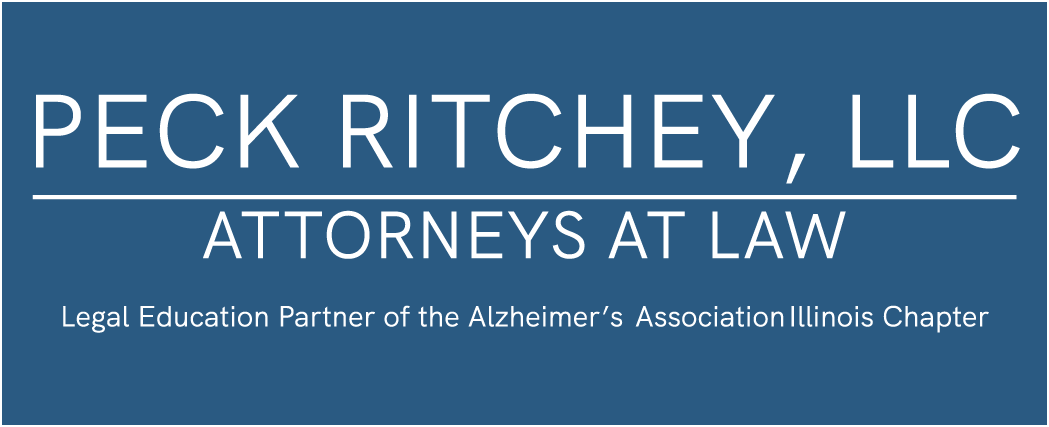Throughout the estate planning process, your legal team will guide you toward strategies that reduce your tax burden. While few in the Land of Lincoln will have to worry about estate-related taxes, we’ll provide you with strategies anyone can apply to protect their assets for their heirs.
Inheritance, Estate, and Gift Taxes in Illinois
 Before we continue, let’s discuss the taxes relevant to estate planning in Illinois. As of 2022, neither Illinois nor the federal government has an inheritance tax. However, your property may still be subject to estate and gift taxes.
Before we continue, let’s discuss the taxes relevant to estate planning in Illinois. As of 2022, neither Illinois nor the federal government has an inheritance tax. However, your property may still be subject to estate and gift taxes.
If your estate’s value exceeds the exemption amounts ($12.06 million federal and $4 million state for 2022), your executor or trustee must pay estate taxes on what remains after the exemption.
You may also be on the hook for gift taxes on living donations. Illinois does not tax monetary gifts, but the federal government can. As of the 2023 filing season, every recipient has an annual exclusion of $17,000 and a lifetime exemption of $12.92 million. If the recipient is over either exemption, the donor must pay taxes if the gift is $17,000 or more.
For both estate and gift taxes, the exemption amounts are high, and it’s rare for someone to need to pay them. If you’d like to reduce your tax liability, you’ll need to legally reduce the monetary value of your estate.
Strategy 1: Use a Trust
If taxes are a top concern, consider opening a living trust as the core of your estate plan. You might be eligible for tax deductions or exemptions on the trust items. However, they will only apply if your trust has the proper terms. For example, a revocable trust allows you to remove items or make changes at any time. However, you may still have tax liability because you still own the items.
With an irrevocable trust, however, you transfer ownership of the items to the trust and cannot make changes once they’re in the fund. Because the trust owns the assets, they are not included in your estate’s value, and you will not be liable for taxes on them.
Strategy 2: Give Money Only Up to the Exemption
In some cases, we may recommend that a client make living financial gifts to their heirs. This step will help them downsize their estate and minimize estate tax liability.
Be mindful of the frequency, size, and recipients of your gifts. You don’t want to exceed a recipient’s annual exemption and trigger gift tax liability. Remember, however, that the gift tax exemption is on an individual basis. If you’re married, you and your spouse can alternate making gifts throughout the year, doubling the exemption to $32,000.
Strategy 3: Donate to Charity
It’s common for our clients to donate to charity as part of their estate. Some may plan a final gift to a cause they’ve supported throughout their life. Others choose to leave their legacy to a place important to them, such as a church or university.
The simplest way to apply this strategy is to continue donating now. You’ll have a 100 percent tax deduction for the amount of each donation, and you’ll downsize your estate in advance. A lawyer can also advise you on creating a charitable trust or donating specific asset types with different tax ramifications, like life insurance policies or retirement accounts.
Strategy 4: Pay Off Tuition and Medical Expenses
 The Internal Revenue Code specifies that certain medical or educational payments are not “gifts” for tax purposes. The payment must go directly to an educational institution or medical facility to qualify for an exemption. There are also limitations on what the gift can cover:
The Internal Revenue Code specifies that certain medical or educational payments are not “gifts” for tax purposes. The payment must go directly to an educational institution or medical facility to qualify for an exemption. There are also limitations on what the gift can cover:
- Educational gifts – Education-related gifts can only support the recipient’s tuition at a tax-exempt school, college, or university. They cannot cover housing or living expenses, textbooks, supplies, or dining.
- Medical gifts – A medical gift is exempt if the patient can deduct it from their own taxes. This includes doctor visits, hospital stays, prescriptions, insurance costs, and medical-related travel and lodging. It does not include elective cosmetic surgery.
Strategy 5: Consider Real Estate Options
Some of our clients dramatically downsize their estates by putting their homes into a Qualified Personal Residence Trust (QPRT.) These trusts last for a fixed period, and they may be an option for younger estate planners or people who have chosen to settle down in a rapidly-growing area.
While your home is in a QPRT, any gains on its value will be tax-exempt. However, if you pass away before the term ends, your estate will become liable for taxes on the gains.
Consult a Chicago Estate Planning Attorney
Are you contemplating your estate planning options? Do you have questions about Illinois or federal estate taxes? The Chicago estate planning attorneys of Peck Ritchey, LLC have over a century of combined experience with the Prairie State’s estate law. We can help you design a plan that clearly specifies your wishes and reduces your tax liability. Contact our Chicago, Northbrook, and Oak Brook team at (312) 201-0900 for a free, no-obligation consultation.
